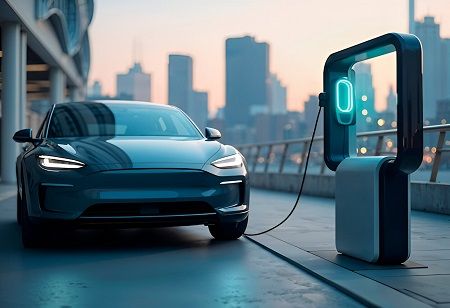
- Nissan cuts Leaf EV output due to China’s rare-earth curbs.
- Factory plans hit, including closures and job cuts.
- Global EV supply chains disrupted by material shortages.
In a significant step that underscores the rising pressures on electric vehicle (EV) producers, Nissan Motor Co. has opted to reduce production of its next Leaf EV model due to challenges with obtaining parts tied to China's rare earth export restrictions. Kyodo News reported a projected production cut at Nissan, which adds more challenges to its restructuring plans that involve closing seven factories globally while eliminating 15% of its global workforce. With the Leaf intended to play an integral role in Nissan's EV roadmap, the cut in production creates challenges for Nissan's already challenging goals in the increasingly competitive clean mobility realm.
This is not a standalone issue. Suzuki Motor Corporation, another major Japanese auto manufacturer, has had to stop production on its popular Swift model as supply-chain bottlenecks spread across Asia’s auto industry.
Central to this issue is China tightening its hold on rare-earth exports. Earlier this year, Beijing put limits on the export of rare-earth elements, which are essential materials used in electric motors, batteries and several clean energy technologies, but also critical in electronics and defense.
Also Read: Delta Unveils High-Speed EV Charger to Boost E-Mobility
Across Europe and Asia, industry stakeholders have raised concerns about the potential implications of these constraints over time. Some producers have even indicated that temporary closures will occur if access to essential materials does not improve pretty quickly. 68:35 Nissan’s CEO reflected on these challenges, noting that this “will have some impact on the automotive industry,” and emphasizing the critical need to diversify supply chains and invest capably in alternative materials and locally sourced options.
The rare-earth issue is just one of the many disruptions affecting the global EV push. However, for companies like Nissan - that are trying to balance growth with sustainability and innovation - it is a good example of how geopolitical shifts can cascade through global manufacturing in very tangible ways.
As the industry goes through this pivotal moment, companies will have to rethink their sourcing models, harden supplier relationships and investigate next generation materials, if they want to stay on track with their EV strategies.

